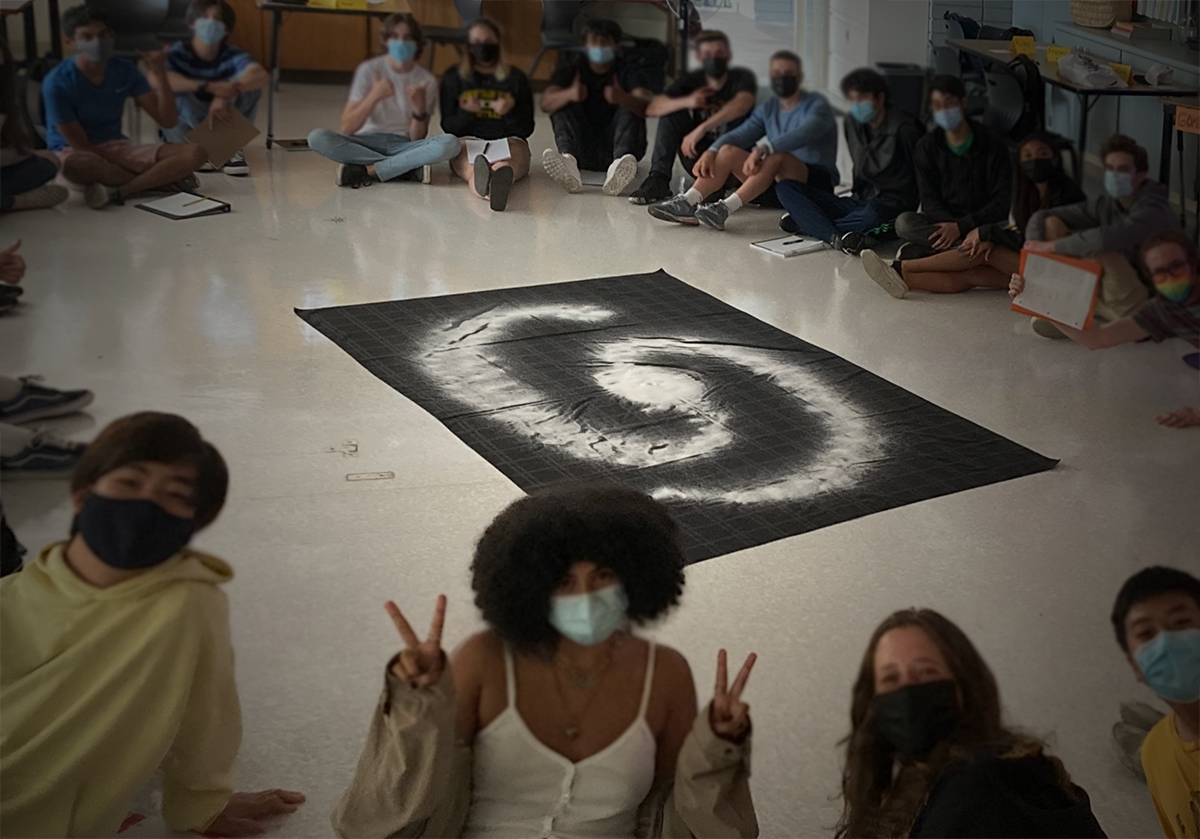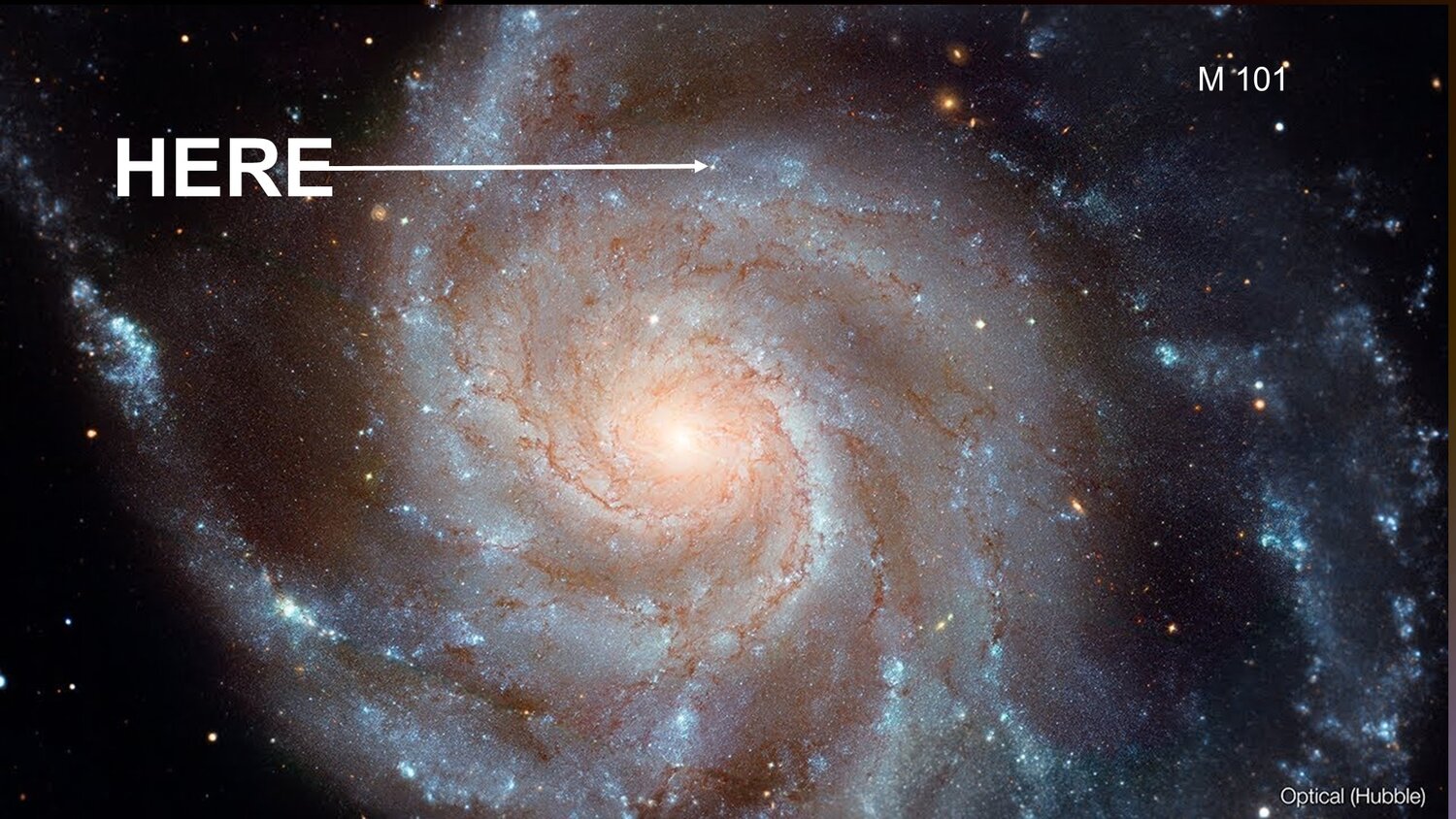It's easy to lose perspective in a difficult conversation. Here's one way to not just keep it, but expand it.
In this post I'd like to talk about perspective, because it’s one of the hardest, and most important, things to maintain in a difficult conversation.
In a book I read recently, the author observes that “feelings follow perception.” His example: When you see a shark, you feel fear. If you suddenly realize what you’re seeing is actually a dolphin, fear subsides, and feelings of relief or joy take its place.
Feelings follow perception. And what does perception follow? Perspective — the vantage point from which we see the world. For example, what we see looking through a microscope is going to be very different from what we see standing at the top of a mountain.
The power of this causal chain — perspective, perception, feeling — is beautifully illustrated in an exercise my wife does with her students. She’s an English teacher at our local high school, and at the beginning of every year she takes her students through an experience called “The Milky Way in a box of salt.” Let me briefly describe what she does, and the impact it has on her students.
First, she lays down a large piece of black fabric (representing space), and shakes out a box of salt (representing the stars), in the spiral shape of our Milky Way galaxy:

She then shares a few known facts about our galaxy, such as:
- It contains about 300 billions stars.
- Traveling at the speed of light — 186,000 miles per second — it would take 100,000 years to go from one end of our galaxy to the other.
- Despite its size, it’s still just a small part of the cosmic picture, being one of about 100 billion other galaxies.
Then, answering the question on every student’s mind -- where on earth is earth in all this -- she tells them it lies about two-thirds of the way out from the center of the galaxy, tucked away in the corner of one of its spiral arms:

Lastly, she gives a brief cosmic history lesson, summarizing some of the major milestones that got us to where we are today:
14 billion years ago:
The Big Bang, the birth of space, time and matter.
13 billion years ago:
The formation of the first galaxies, and the starry furnaces out of which every element in nature emerges.
5 billion years ago:
The birth of our solar system.
4 billion years ago:
The birth of life on earth.
200,000 years ago:
The birth of Homosapiens Sapiens — the species that “knows that it knows.” Made of the same elements as the universe itself, we are, in the words of astrophysicist Carl Sagan, “star stuff contemplating the stars.”
17 years ago:
The birth of the students in the classroom.
Once the presentation is over, the class wrestles with big philosophical questions, such as: What’s the significance of seeing ourselves in this larger context? What does it say about who we are? About what’s important?
At the end of class they write down their main insights. I looked at this year’s reflections, and organized them into two categories: perceptions and feelings. How did such a large perspective change how they see, and how did that change how they feel? Here’s a selection of what they wrote:
How it changed how they see things
- It makes me understand how my existence automatically relates me to everyone.
- It made me realize that I thought I was living my life the way I wanted to, but I wasn’t actually. It also makes me realize a lot of things aren’t worth the little time I have.
- This experience has helped me understand that what we do or think in life matters in the wider perspective.
- It made me realize how amazing it is that I am here.
- It expands my imagination and creativity. It helps me think about the gray stuff, rather than just the black and white things.
- It really gives me a new look on life. I do not exist for no reason.
- It’s mind blowing and puts things into perspective and challenges our traditional way of thinking.
- Such a big concept attributes a sense of worth to each being in the universe.
How it changed how they feel
- This experience has made me grateful for being alive today, because so many things had to go right for me to be here.
- Rather than being weighed down by the reminder of how tiny I am, I feel rather comforted by it. It makes me remember that a lot of things I consider a big deal are actually not that big of a deal, and so I start to stress out about them less.
- I feel like I’m part of something greater. I understand better the fact that I hold a place (no matter how tiny) in the universe that makes me who I am; I have importance in who I am because of this connection.
- It keeps you humble. You know that you are lucky to even be here.
- It is humbling and also bewildering. It is so important to realize you don’t know everything, and also that others don’t know everything either. It also shows that it’s okay to sometimes not understand. Some things are made to not be understood.
- It makes me feel less like everything in my life is about me, but instead like I’m a piece to a bigger puzzle.
- It gives us meaning. We can take what we are used to (our lives, our small worries) and put it into perspective; from this we can better appreciate who we are and how we came to be.
As I said, it’s a powerful example of how feelings follow perception, and how perception follows perspective. So how can we use this in a difficult conversation?
We know that when things get heated in a difficult conversation, our perspective narrows, and protecting or defending ourselves becomes our primary objective. When that happens we lock into a specific interpretation of events, and literally “lose sight” of other possibilities.
If we can become aware of when this is happening to us in the moment, we have an opportunity to pause the conversation and take a few steps back. To breathe, to reflect, to reconsider.
The word “consider” literally means “with the stars.” So if you’re able, take “reconsidering” literally and go ahead — spend some time with the stars. Contemplate the mystery, magic and immensity of existence, and see if it has the kind of effect on you that it had on my wife’s students. See if it helps you perceive and feel things differently, and if it helps you then re-engage in the conversation in a way that’s a little more open, a little more revealing, a little more humble, a little less sure that you have the whole picture.
Perhaps a practice like this is already part of your process. If not, I hope you'll give it a try, and that you'll let me know how it goes.
If you're interested in the details of the Milky Way in a box of salt exercise, let me know by emailing me at kern@difficultconversationsproject.org/. My wife is more than happy to share it with you.
Comments (2)